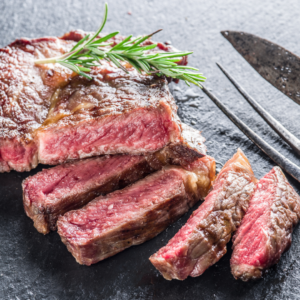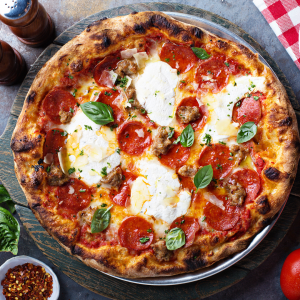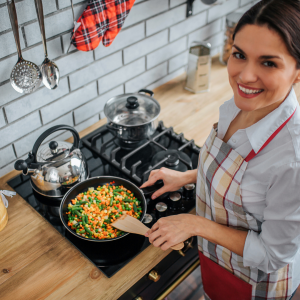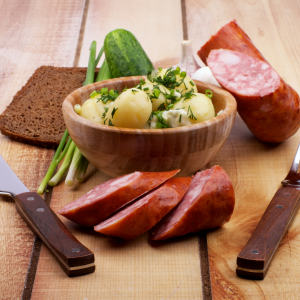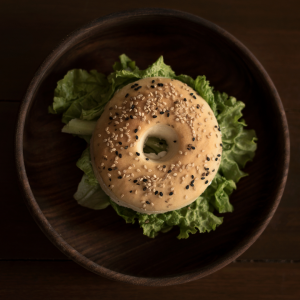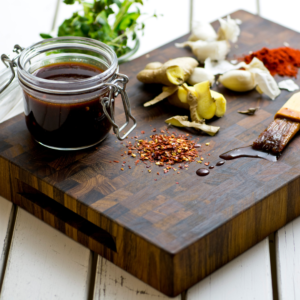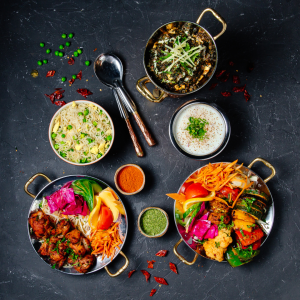
Baking is a great way to use extra fruit or vegetables, make tasty treats, impress guests and even make a living. Even the most novice of bakers should know that, while it can seem daunting at first, baking can be a relatively easy undertaking. All you need is a well-stocked kitchen, the right tools, and a bit of know-how.
Baking is an art, and every good baker has their own tricks, secrets, and tips. Baking can seem daunting, as once you start, the baking process can go on for hours, and mistakes are bound to happen. But it doesn’t have to be that way, and if you know a baker’s tricks, you can keep the process going and end up with a tasty treat. With a little more refinement, you may even find you’re good enough to bake professionally. Of course, you’d need to be aware of the usual hygiene concerns to bake for a living, meaning your kitchen will need inspecting and you’ll need to wear gloves if you’re looking to get started now, but once you get the green light from the hygiene inspector, you’ll be good to go. Just remember not to lick the bowl!
Here are the 5 essentials when it comes to baking.
Water
A baker’s best friend is water; even the best ingredients go to waste when cooked with the wrong amount of water. Getting the water right starts with weighing everything. Never eyeball the amount of water you need in a recipe, or you could be wasting money, time, and ingredients. When baking, water is just as important as its key ingredients, helping to incorporate the ingredients together. It also makes the dough moist, giving it a fluffy texture. Water also acts as a leavening agent while baking, and it helps produce the crispy bread crusts we all love.
Sugar
Sugar is one of those ingredients that has many uses in baking. You might think that sugar simply makes your baked goods sweet, but it has an important role to play. The chemical bond between sugar and water helps to lock in moisture so that treats like muffins and brownies don’t dry out too quickly in the oven. Even bread has a little sugar added to ensure it stays soft and moist. However, sugar doesn’t have to be added in the form you’re most familiar with. You may immediately think of white, granulated sugar when asked to add sugar, but brown or demerara can also be used. Alternatively, you can use honey, syrup or treacle, or even fruit high in naturally occurring sugars.
Butter
Butter is an important ingredient in baking, but it can also be an expensive ingredient. Luckily, you don’t usually need too much of it. Butter is mainly used to trap steam and carbon dioxide within the dough or batter to help your baked goods rise. This creates a light and fluffy texture, making your cakes softer and more delicious. It also acts as a flavour enhancer by creating fatty bonds. As the butter melts, natural flavours dissolve into it and bind everything together, creating a richer, creamier taste.
Salt
Salt often gets a bad rap in the health community as it can raise blood pressure and contribute to heart disease. However, it’s important to use salt in baking as it serves an important function. Baked goods are full of fats and sugars, making them attractive to bacteria. You’ll find a cake with no salt turns mouldy pretty quickly as bacteria makes its way in, but salt acts as a preservative. This helps your baked goods last much longer, reducing waste. It also enhances flavour, but the taste of salt should never be discernible itself if you’ve used the right amount.
Flour
When it comes to baking, there is a lot of literature about what specific ingredients do to baked goods. The main one, of course, is flour, and while flour comes in wide varieties, from self-raising to whole wheat flour, recipes will almost always call for one of them. While a gluten-free diet may be trending right now, today, wheat flour is still one of the 5 essentials for baking.
Baking is a fun and rewarding activity that many people around the world enjoy for personal or professional reasons. However, it can also be quite challenging, as it requires a lot of preparation and attention. First, you need to get the right ingredients for your recipe. Next, you also need to make sure that your oven is working well, you have oven mitts to protect your hands (if you don’t have them, check out www.rent.com/blog/best-oven-mitts-of-2023/ for recommendations), and you have all the other necessary kitchen tools.
The next step could be to ensure that you have all the ingredients required for the particular cake or pastry you are baking. Once you have cleared the checklist, it is time to follow the recipe step by step precisely. Once you have put the batter into the oven, keep an eye on it while it’s cooking, so you can adjust the temperature and cooking time as needed.
Needless to say, baking is a popular activity pursued by people of all ages and backgrounds. For some, it is a source of pure joy, allowing them to create something delightful on their own. Others may look at it from a business standpoint and aspire to turn their passion into a profitable venture. Those who fall under the latter category choose to enroll in a pastry arts program. These programs can offer an opportunity to refine their skills and knowledge, enabling them to generate income through their baking expertise.
From training in the kitchen and learning about the science of baking; understanding food safety and sanitation to seeking the best ways to package their products, like using cakeboxes from Packaging Chimp, for instance, such programs tend to offer individuals an all-round tool they need to succeed. This means, a hobby can be turned into a full-fledged business in no time, if the individual shows the zeal and patience to perfect this art and gets into the ins and outs of this industry.
Conclusion
Baking offers a multitude of benefits that extend beyond the creation of delicious treats. It serves as a creative outlet, allowing individuals to express themselves and experiment with flavors and techniques. Engaging in baking can promote relaxation and stress reduction, providing a therapeutic experience. Baking also fosters a sense of accomplishment and boosts self-esteem as one sees their creations come to life. It encourages mindfulness and focus, requiring attention to detail and precise measurements. Additionally, sharing baked goods with others cultivates social connections and brings joy to both the baker and those who enjoy the treats. Overall, baking brings pleasure, enhances well-being, and nurtures both creativity and social bonds.

